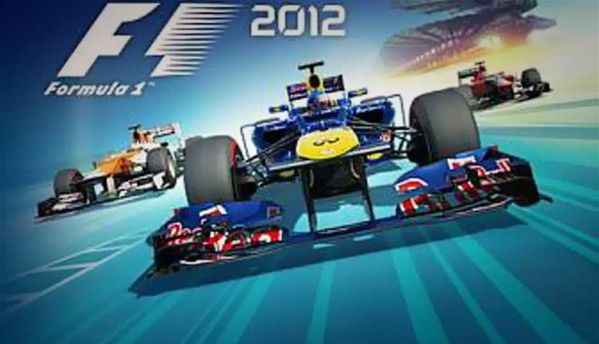
With F1 2012, we have to applaud the hard work that has gone in to bring the simulation as close to the real world F1 circus. The interface looks a lot better, and the car and circuit detailing has been improved upon the already brilliant F1 2011. However, there is now a steep learning curve attached to the driving even in the easy mode. The career mode now requires a lot of patience.
Interface
The moment you start with F1 2012, the first thing that inevitably catches your attention is the redone user interface. Gone is the minimalistic one info box look from the previous edition, and replaced with a mixture of card stacks and multiple boxes. This works well because you get a lot more visual elements on one screen itself. The card stacks style also has the advantage of offering more info on one screen, with the effect deploying the focus on the main stack and slightly blurring out the rest. What carries forward are the information screens about your progress in the game, while the next race loads. This time though, instead of overall numbers showing up, you get the stats only from the particular section you are racing in – career, quick race etc.
To start off, you get a huge visual of an F1 car that is circling on a turntable, and at first start, it is usually the Red Bull one, but will change the moment you select a car and begin playing the game. The initial menu runs as a strip towards the bottom of the screen. Beyond that, it is all like a stack of cards, till you head into the season challenge mode, which is more like influenced by paper clippings.
Incidentally, F1 2010 and F1 2011 had relatively similar UI, with just minor tweaks between them, instead of a complete redo. The overhaul this time around is impressive. While there was absolutely nothing wrong with the interface on the predecessors, this one just takes the next step towards being very functional.
 |
 |
 |
 |
 |
 |
 |
 |
 |
 |
Features
Carried forward as it is are the quick race and the promise of completely realistic track layouts. There are the new additions – Texas circuit being one, but the older ones remain very much realistic. For someone who follows F1 closely, any discrepancies or unrealistic elements would have stood out like a sore thumb. No such issues though. What has improved a lot is the way the crowd/audience looks. Rather than cardboard cutouts, they are more realistic 3D features this time, with a lot more flags and banners floating around on the stands. The crowd cheers are clearly audible this time around. Try leading the Italian Grand Prix round the Curva Parabolica and on to the start finish straight in a Ferrari and you can hear the crowd roar.
There is a lot of new stuff though. The first is the Young Drivers’ Test. This is now the entry point to the full career mode. You have to get through two days of testing, and your performance at the end of it will decide which teams are unlocked for you to begin the Career mode in. With one Gold and one silver, we saw that you could unlock HRT, Caterham and Torro Rosso. Better performance, and Williams and Force India will be available. Once you get through, the game aims to offer the complete experience – team meetings, press conferences, offers from rivals teams and you even have your own manager who takes care of the PR and liaison activities.
The Season Challenge mode is another addition, which lets you pick a car and compete over the length of one season with the rest of the actual grid. At certain junctures, you need to choose your rival, someone who you want to beat. If you happen to finish better than them over the next two races, expect that team to offer you a contract. It is up to you to accept or reject it.
Champions Mode throws up a series of challenges where you take on the big guns – the world champions, in a direct competition. For example, you have to catch up and overtake Kimi Raikkonen at Spa Francochamps within three laps. Before you start, you can choose between easy, medium and hard modes, but trust us when we say this – even in the easy mode it is very difficult to beat the champions.
Qualifying for races in F1 2012, except the Season Challenge mode, has the three session format replicated. You need to be above the drop out zone to move forward to the next round.
Flashback is something that lets you rewind the race up to 15 seconds and resume from there. Crash the car, immediately press Select on the controller, rewind to the point where you were driving properly and resume from there with no loss of time or any penalty. This is available only up to 4 times per race, but could be something that first time players and casual gamers could find very useful.
We have already spoken about the circuits, and how real they look. Now, we talk about the cars themselves. In the previous version, the cars themselves were very realistic. There have been slight tweaks to make the cars as close as possible to this year’s versions, and the realism remains intact. Every little detail is clearly visible, be it outside or the cockpit mode. Tires also have a distinct look to them. The Pirelli Chinterato tires are available in various compounds, each with a distinct coloured sidewall.
Visit page two to read more about F1 2012, Gameplay, and Verdict…
Gameplay
This is where Codemasters went a little overboard with trying to make the game look realistic. There is a positive side to it, but an equally massive negative angle too.
First up, if you are driving one of the top cars – McLaren, Ferrari or Red Bull, the game is a lot of fun. You will stay near the top of the standings as long as you don’t do something rather foolish. This is true for all modes – quick race, career etc. The handling of this bunch of cars is exquisite, and rather realistic too. You can bounce over kerbs without many issues, while in F1 2011, that ensured a spontaneous spin. In F1 2012, the car will spin if you put a wheel on the green stuff, but very stable even if you aren’t taking the conventional lines round the corners.
However, select a second tier car – Mercedes, Renault or Williams, and the chances of catching up to Fernando Alonso or Lewis Hamilton are almost negligible. Well, when you can see the car in front pulling further and further away at every corner, there is little that you can do. We appreciate that the performance of the cars is replicated as close to the real world racing scenario as possible, but this does take a lot of fun out of the racing bit. If you replicate the exact same difficulty settings between F1 2012 and F1 2011, you can see a huge difference. In the predecessor, we have actually won a rain hit Belgian Grand Prix because of strategy in a Lotus! In this game version, there is no chance of an upset at all, because of the hugely inferior performance of the mid-field and lower rated cars.
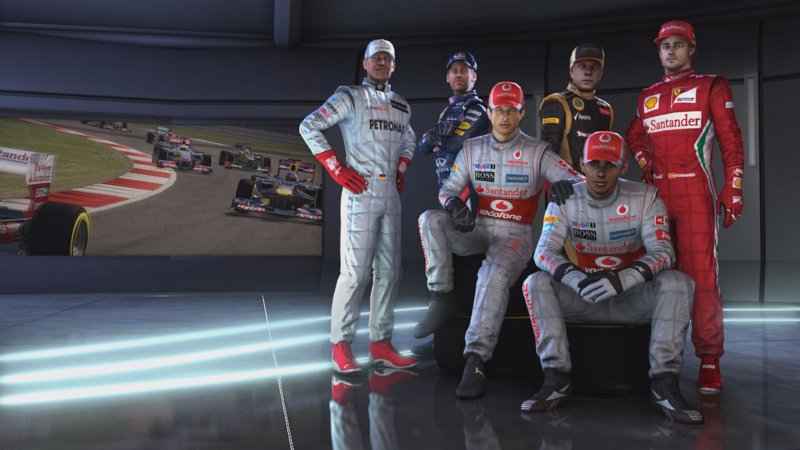 |
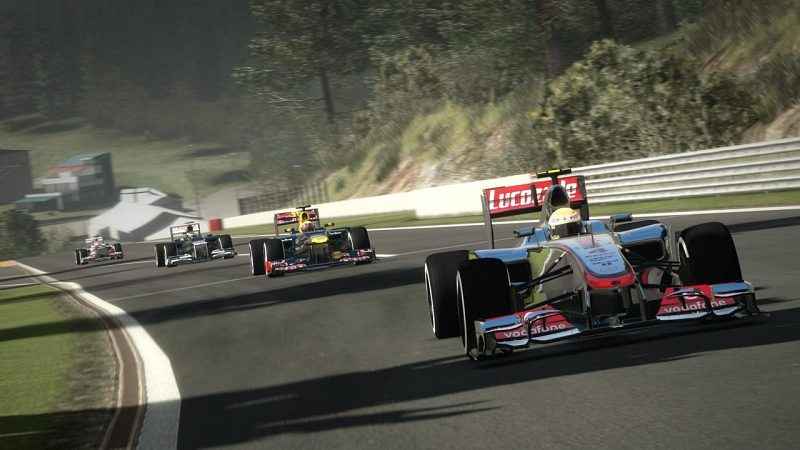 |
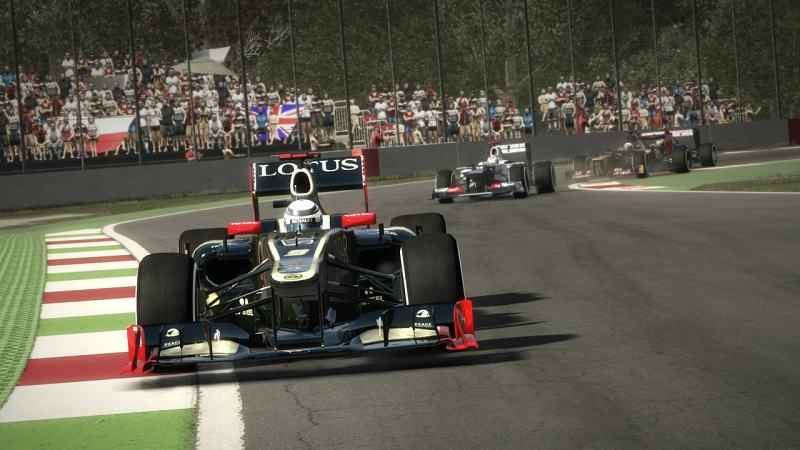 |
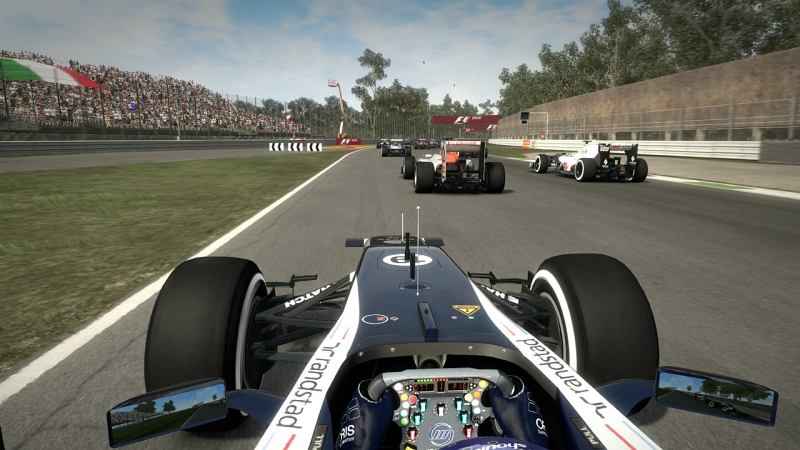 |
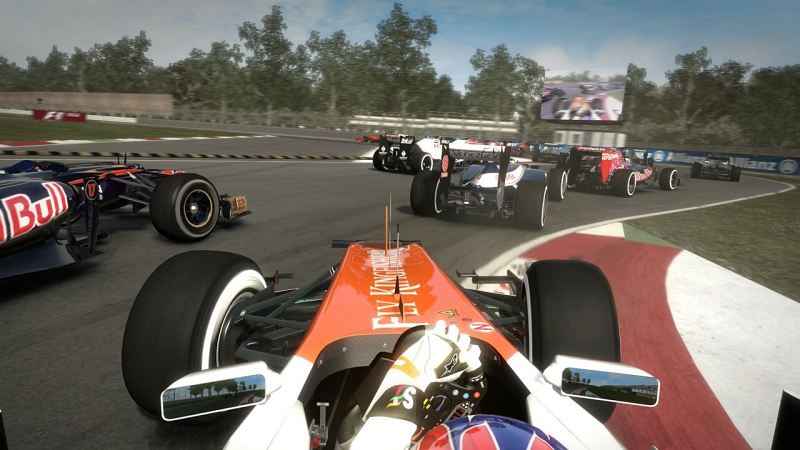 |
Penalties also really drove us up the wall. Okay, imagine this scenario – you are racing wheel to wheel with Jean Eric Vergne at the Melbourne circuit between turn 6 and turn 7. Try hitting him on the side, or give him slightly lesser room at the next corner, and you face a 10 second or a stop/go penalty for “unsporting behavior”. Another scenario – everyone heads into the first corner chicane at Monza, and Roman Grosjean taps you from the left. Inevitably, your car slides, and you happen to hit someone slightly behind on your right. You will be given a 10-second time penalty for causing a crash. You may point out that probably Roman also got a penalty, but ahem, that can be verified by checking the Race Director data right then and there when you press the start button. The penalty system in F1 2011 was better than F1 2010, which was also very harsh, but rather than improving, this seems to have become a congregation of studious men who scoff at anyone who doesn’t speak the perfect Queen’s English. Where is the fun element if you get 10 seconds added to your time for the slightest bit of fun? And why should you be penalized for someone else’s mistake?
KERS (Kinetic Energy Recovery System) and DRS (Drag Reduction System) make a lot of difference in terms of the performance of the car during that time, and even visually seems to make a bigger impact than earlier. Interestingly, some corners on some circuits aren’t optimized for KERS or DRS used on the stretch before. The biggest example is the first corner chicane in Monza. Exit the Curva Parabolica and deploy KERS (and / or DRS) for a while on the straight. Approach the corner, and you realize that you aren’t going to make it round anyway. Brake hard, lock up the tires, run wide, cut the chicane and get a penalty for “cutting the track”! We tested to see if this was an issue throughout, at the other similar suspect – Montreal circuit in Canada. Use DRS and KERS down the Ile Notre Dame straight taking the top speed beyond 330kmph. You approach the final corner chicane that takes you right up against the Wall of Champions on to the start finish straight. The braking was perfect, turn in was accurate, no tank slapper on the exit and head off for another lap. Essentially, the Monza circuit issue is a one off, and the two work well on the rest of the circuits.
Bottom Line
F1 2012 was supposed to bring in more realism into the franchise. And it surely has. Car and circuit detailing is better than ever before. The qualifying session now has the three block format. You have the career mode that starts only once you pass the Young Drivers’ Test. The performance at this test decides which teams think you are good enough to drive for them. Then comes the issue of car performance. It is good to see a realistic portrayal of the car performance, but even in Easy mode, this gap is a little too big. Casual gamers will get put off very easily, and someone starting in career mode will need a lot of patience to move up. There are a lot of drab hours in store for you as you trundle around in a Torro Rosso for one full season, at least!
We would play F1 2012 for the fancy new stuff – Champions mode and the Season Challenge. To play the career mode, we will fish out the F1 2011 disc again.
Developer: Codemasters Birmingham
Publisher: Codemasters
Genre: Racing, Sports, Simulation
Platform: Playstation 3, Microsoft Xbox, Windows
